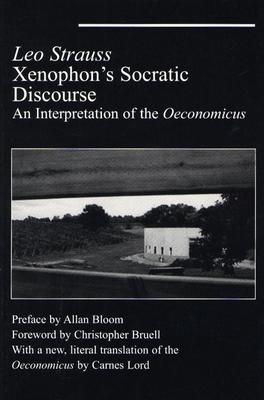Xenophon's Socratic Discourse: An Interpretation of the Oeconomicus, Cornell University Press, 1970. Reprint: St. Augustine's Press, 1998.
Excerpt:
The Great Tradition of political philosophy was originated by Socrates. Socrates is said to have disregarded the whole of nature altogether in order to devote himself entirely to the study of ethical things. His reason seems to have been that while man is not necessarily in need of knowledge of the nature of all things, he must of necessity be concerned with how he should live individually and collectively.
For our precise knowledge of Socrates’ thought we depend on Plato’s dialogues, Xenophon’s Socratic writings, Aristophanes’ Clouds, and some remarks of Aristotle. Of these four men Xenophon is the only one who, while knowing Socrates himself, showed by deed that he was willing to be a historian. Hence it would appear that the primary source for our knowledge of Socrates should be the Socratic writings of Xenophon.
This appearance is rendered powerless by a powerful prejudice which emerged in the course of the nineteenth century and is today firmly established. According to that prejudice Xenophon is so simple-minded and narrow-minded or philistine that he cannot have grasped the core or depth of Socrates’ thought.
Online:
Amazon

